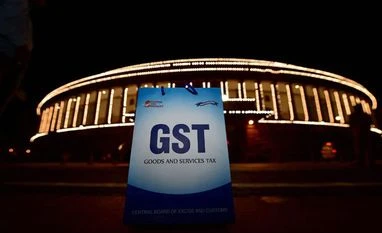The two-member bench comprising Justice S Muralidhar and Justice Pratibha M Singh passed the directions on a petition by J K Mittal, who is the owner of a law firm providing a variety of legal services and representing clients in various courts and tribunals across the country.
Mittal had approached the court highlighting concerns over the notifications issued by the central government and the government of the National Capital Territory of Delhi (GNCTD) in June 2017. According to the petitioner, the two notifications were in violation of the Central Goods and Services Tax (CGST) Act and the Delhi Goods and Services Tax (DGST) Act, besides contravening Article 276A of the Constitution.
The petitioner said that the June notifications had allowed GST on reverse charge for representational legal services and not other such services, which was contrary to the 14th meeting of the GST Council where all legal services had been recommended to be taxed on a reverse charge basis (to be paid by the clients). Highlighting relevant portions of the CGST and DGST Acts, which envisage the making of notifications on the recommendations of the GST Council, Mittal stated that the notifications were contrary to the provisions of the laws and would have an adverse impact on lawyers and the legal profession.
Finding prima-facie merit in the submissions, the bench had on July 12 issued notices to the Central Government, GNCTD and GST Council and directed the relevant authorities not to take any coercive steps against advocates and law firms for the non-compliance of GST. The court had also asked the Centre to clarify whether services of lawyers and law firms came under the GST regime, after concluding that there was no clarity on whether all legal services would be governed by the reverse charge mechanism.
In response to the court's order, the Ministry of Finance had issued a press release on July 15 which said that the June notifications applied to all legal services, including advisory and consultancy services.
The bench, however, questioned the validity of such a press release and asked the Centre if such actions could clarify (or modify) a GST Council recommendation. The court has asked the appropriate governments and the GST Council to respond to these questions, as well the other contentions in the petition by August 25.
It has also reiterated that no coercive actions are to be taken by the authorities for any non-compliance until the next date of hearing on September 14. Until such time, all legal services are to be taxed on reverse charge mechanism unless the lawyers (or law firms) choose otherwise, the court has ordered.
Mittal's petition has also said that lawyers and law firms should be exempted from making GST registrations and has questioned the requirement of lawyers (and law firms), who were previously registered under the Finance Act 2011, to re-register themselves under the GST laws.
Agreeing with this contention, the bench in its July 12 order had said that if all legal services were to be governed under the reverse charge mechanism, there would be no purpose in getting compulsorily registered under GST. In such cases, those seeking voluntary registration to avail input tax credits could anyway avail the facility under Section 25 of the CGST Act and the corresponding provisions of the other laws, the court had said.
To read the full story, Subscribe Now at just Rs 249 a month
Already a subscriber? Log in
Subscribe To BS Premium
₹249
Renews automatically
₹1699₹1999
Opt for auto renewal and save Rs. 300 Renews automatically
₹1999
What you get on BS Premium?
-
Unlock 30+ premium stories daily hand-picked by our editors, across devices on browser and app.
-
Pick your 5 favourite companies, get a daily email with all news updates on them.
Full access to our intuitive epaper - clip, save, share articles from any device; newspaper archives from 2006.
Preferential invites to Business Standard events.
Curated newsletters on markets, personal finance, policy & politics, start-ups, technology, and more.
Need More Information - write to us at assist@bsmail.in
)